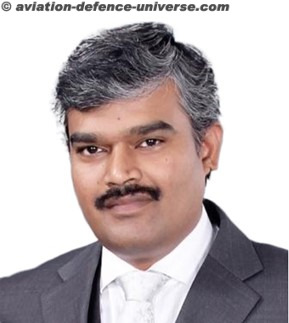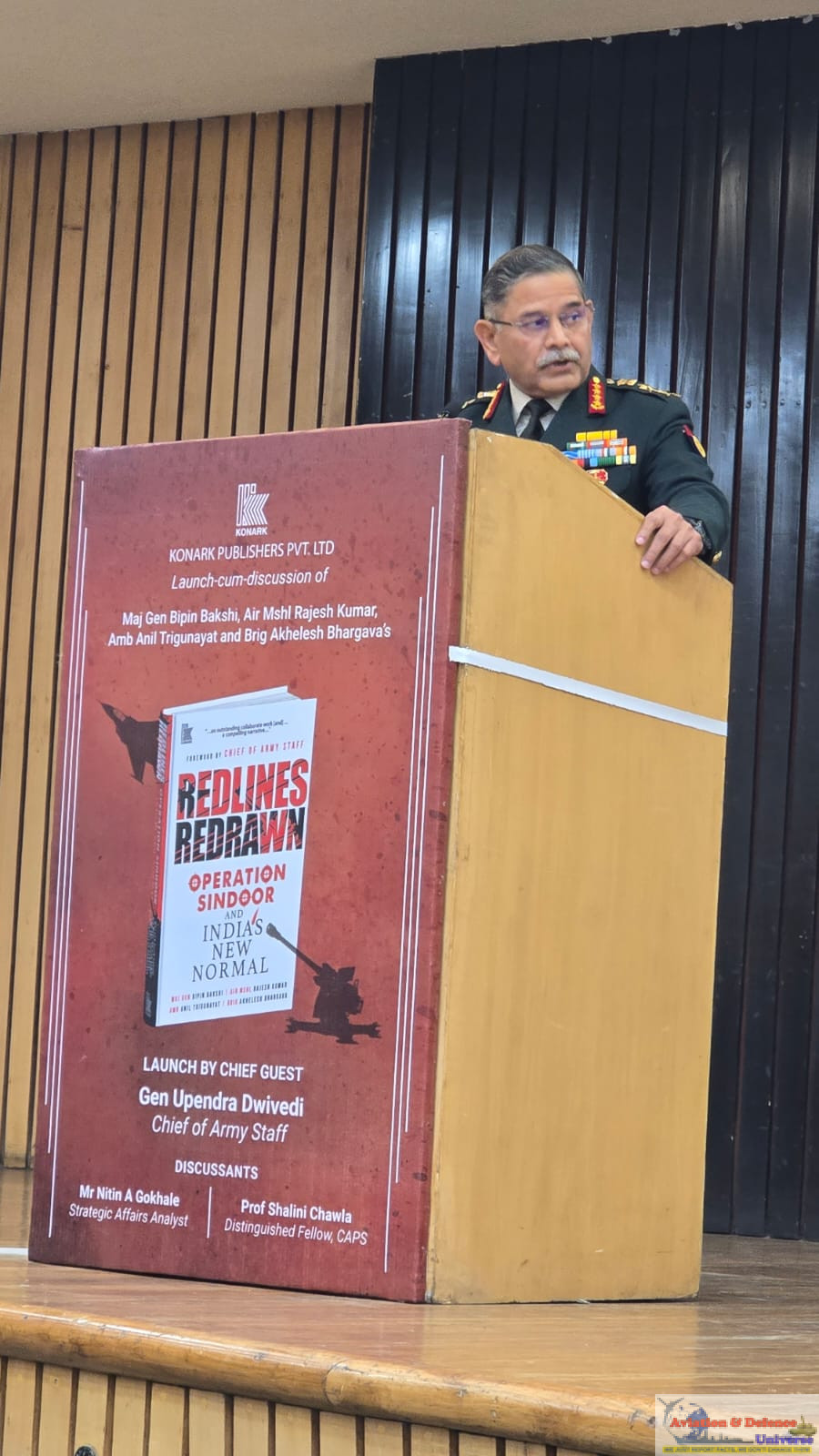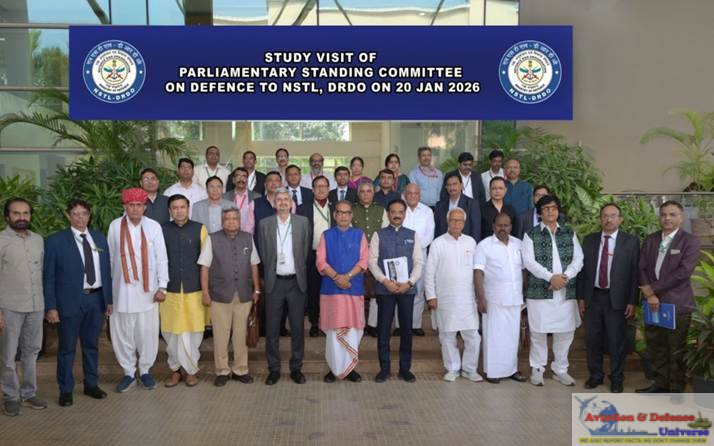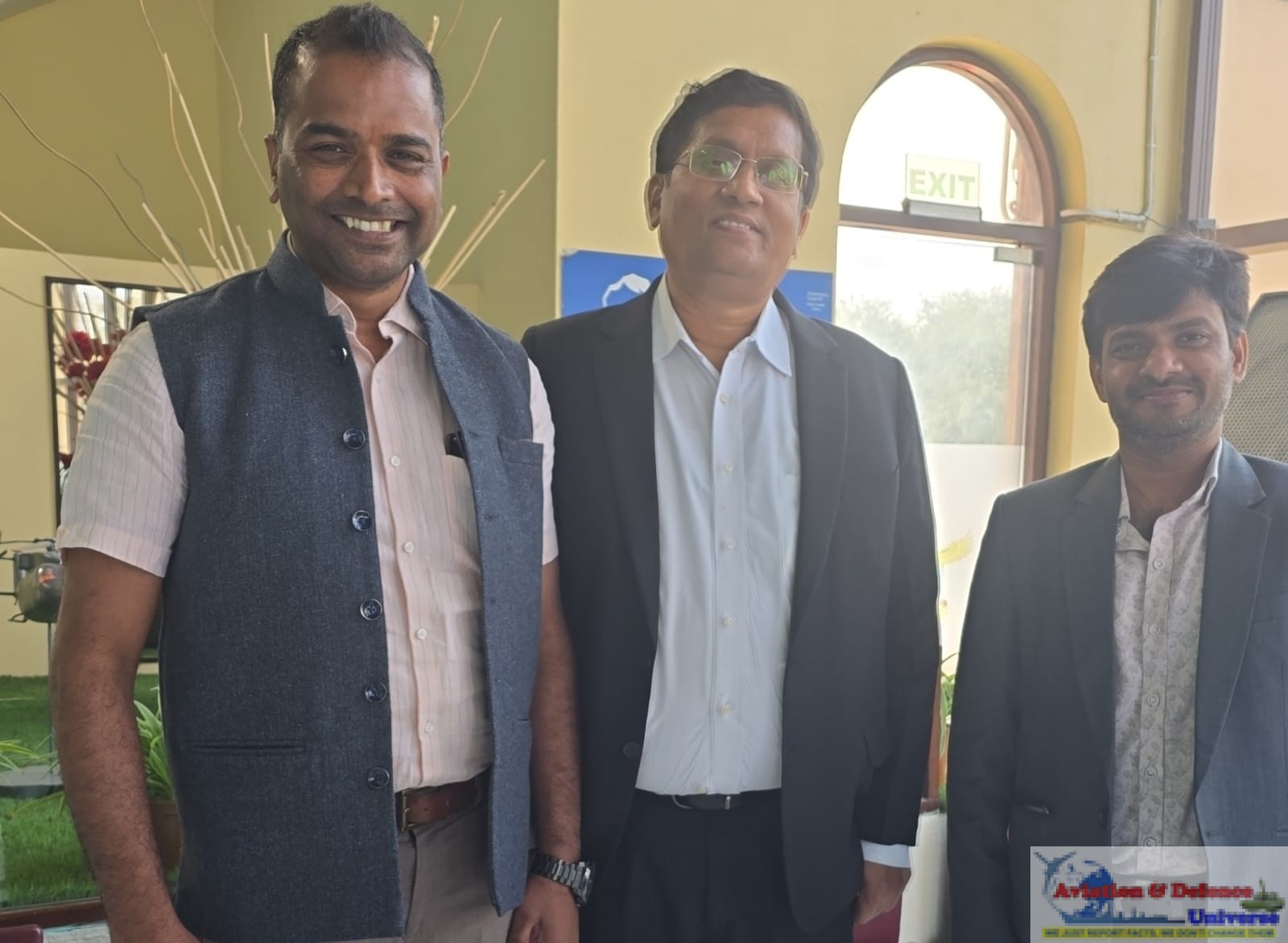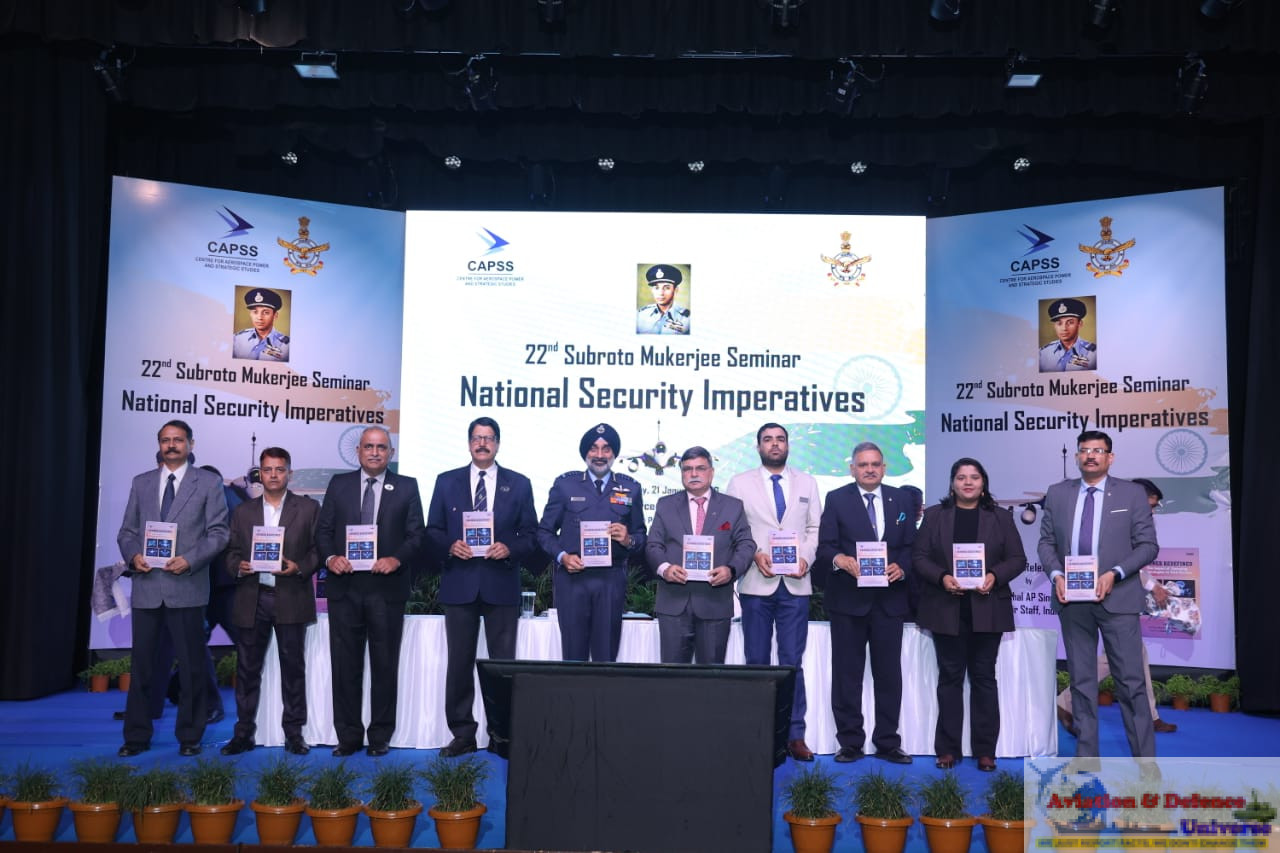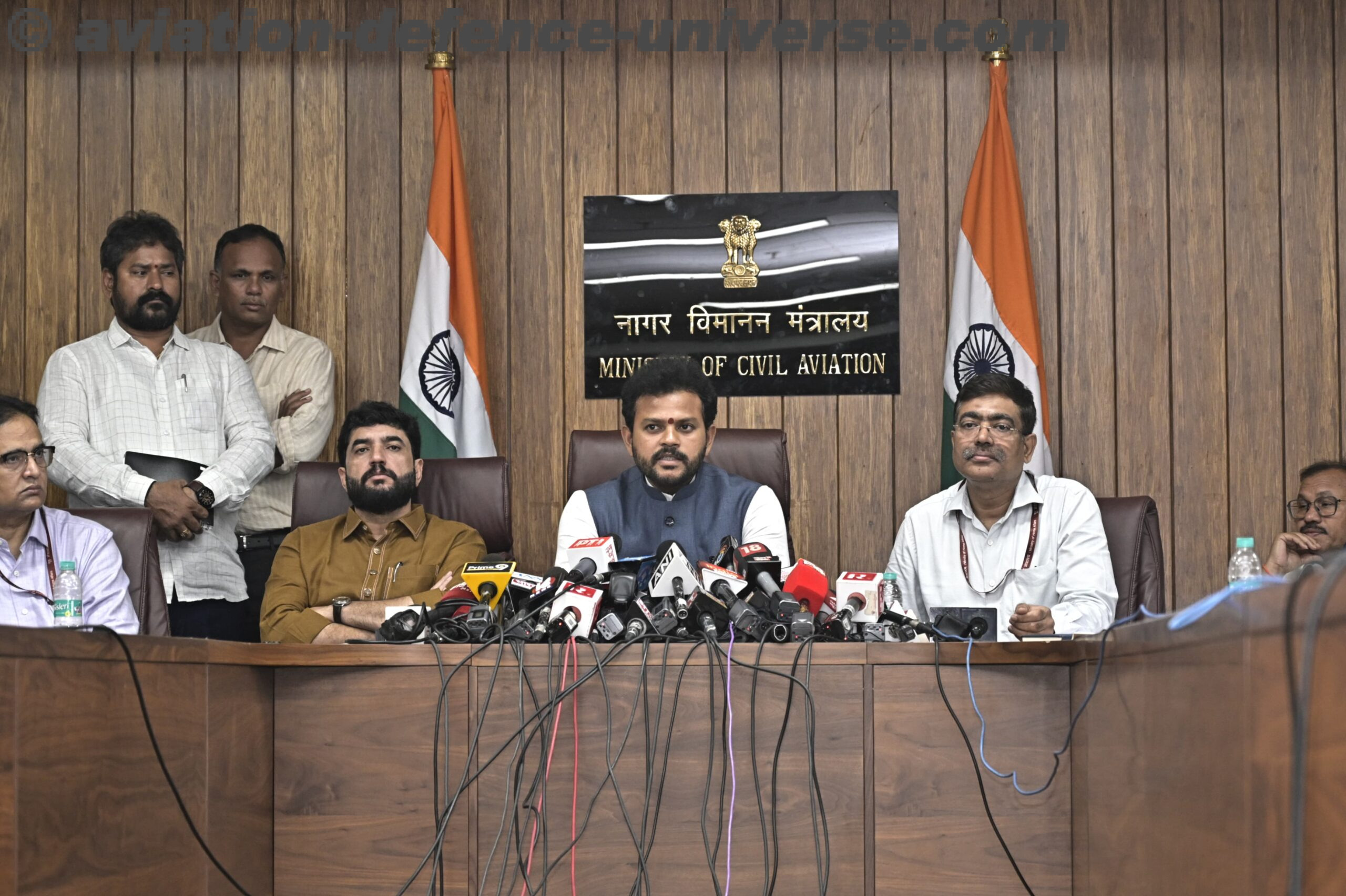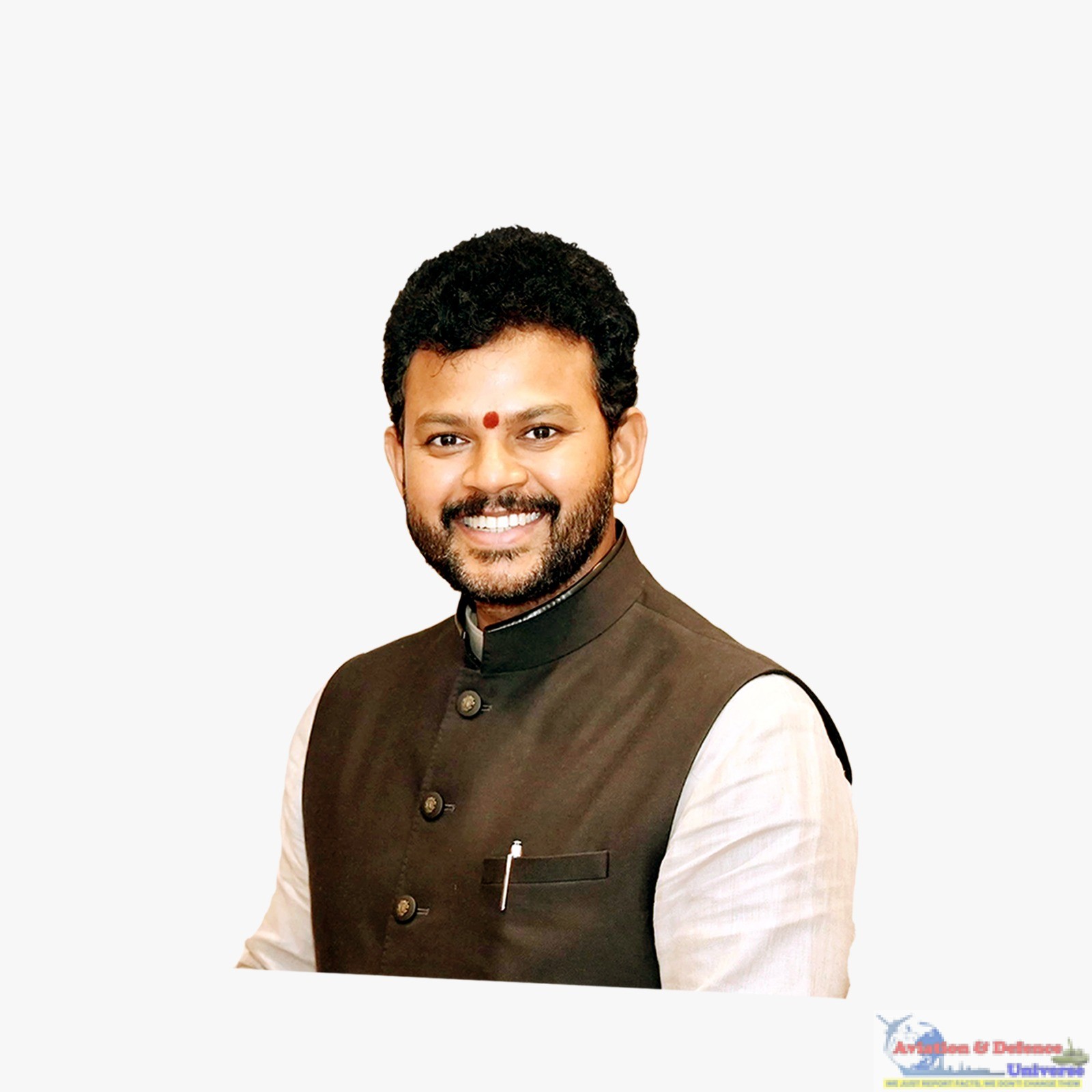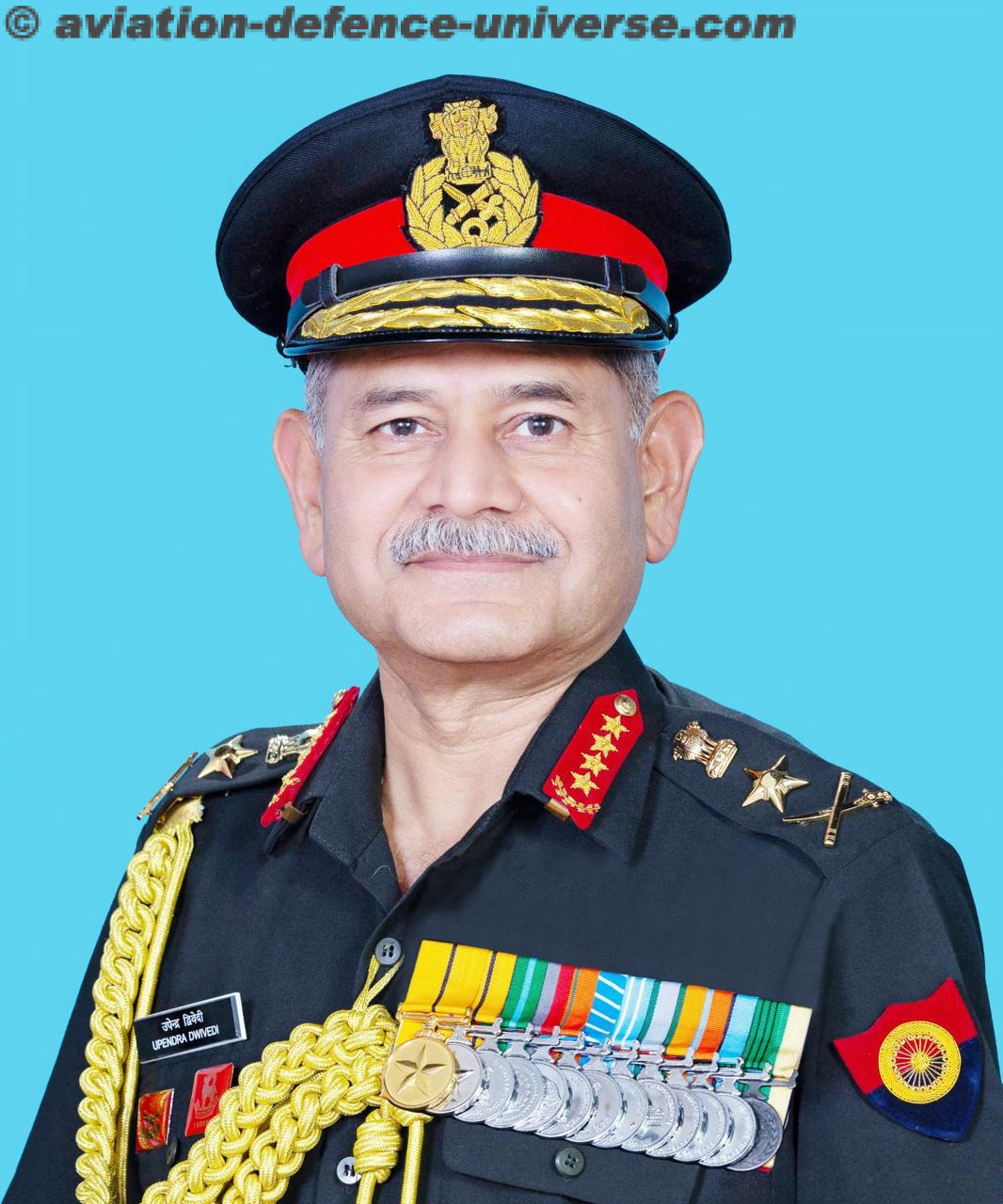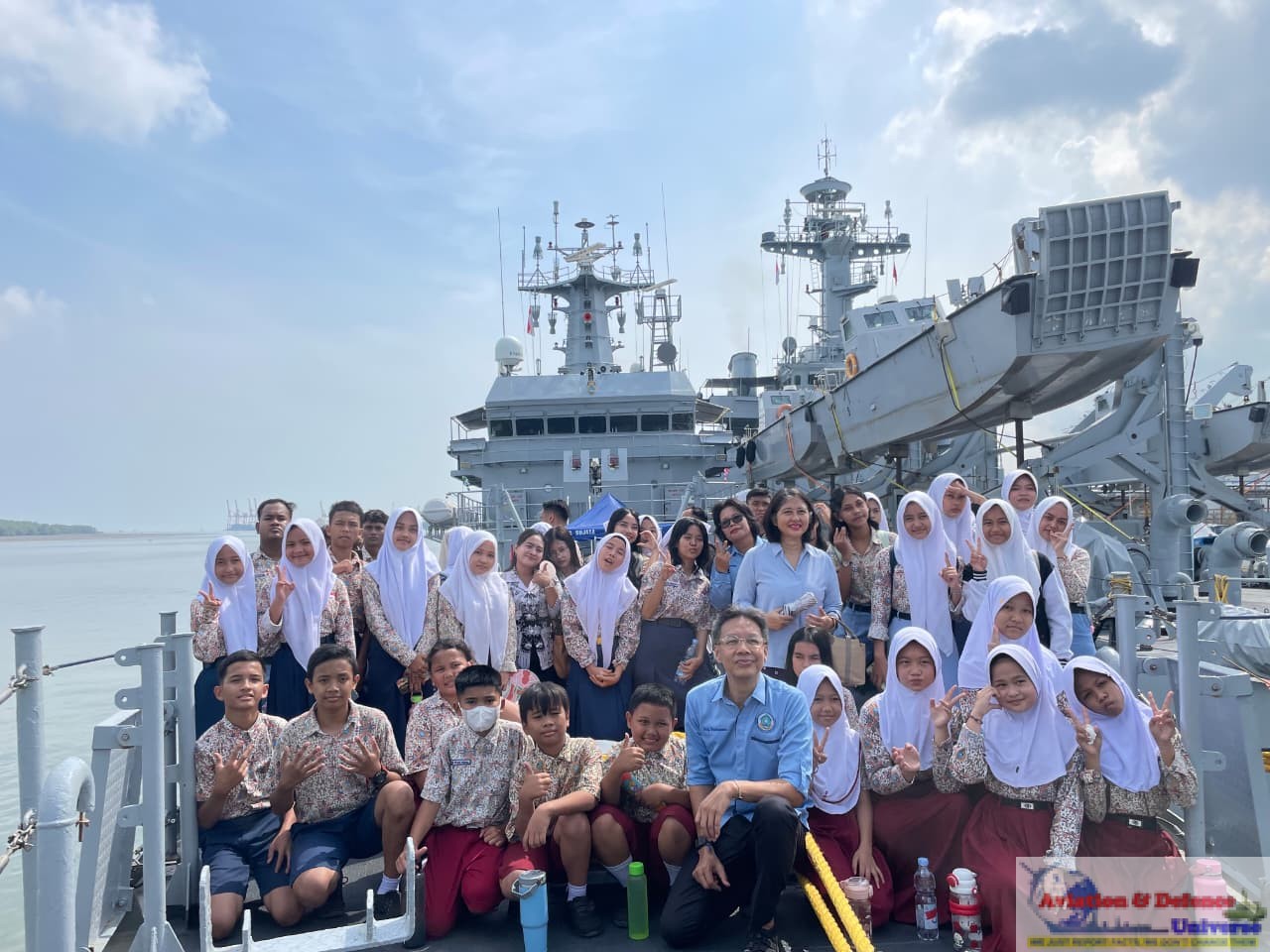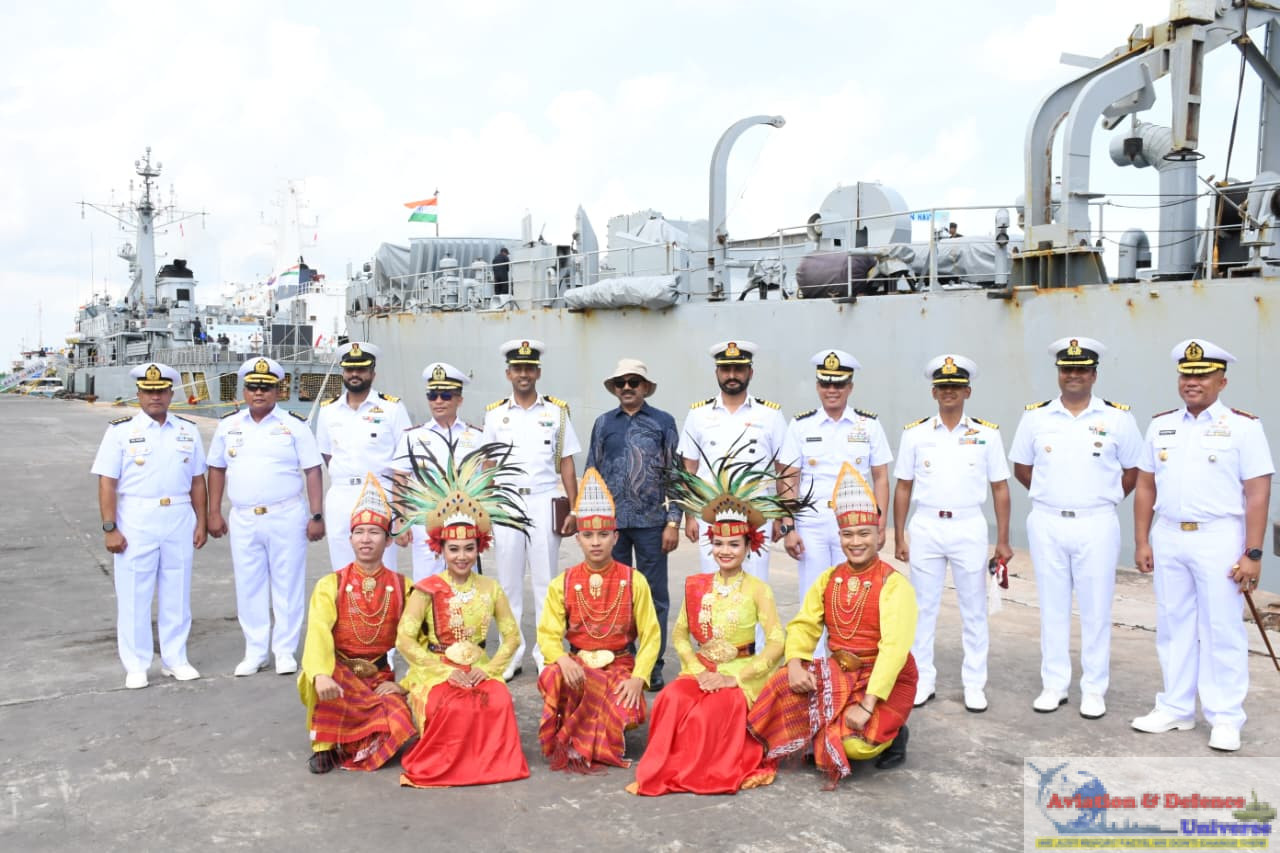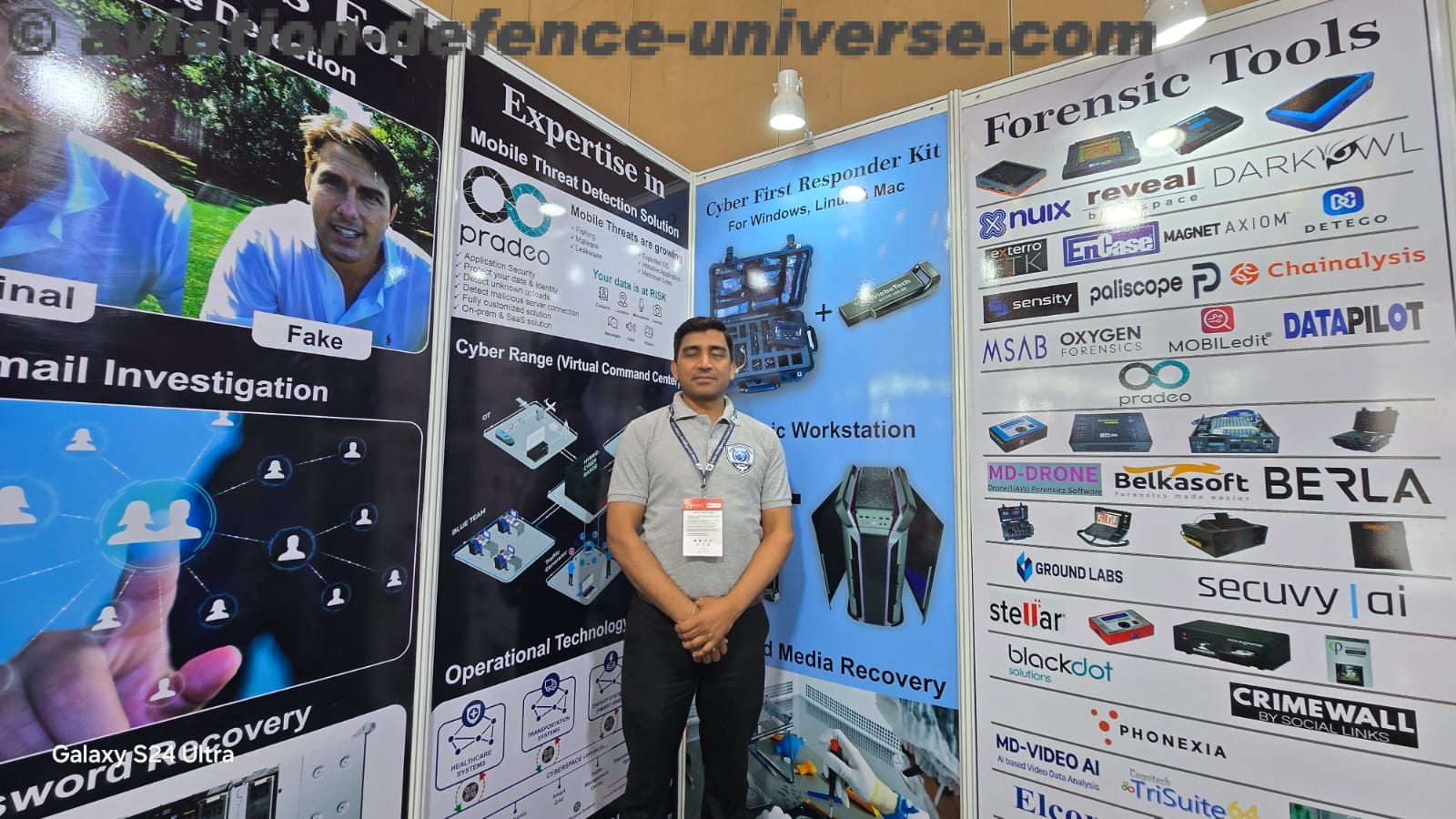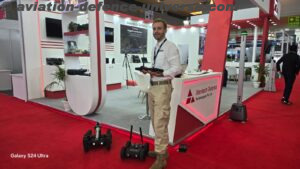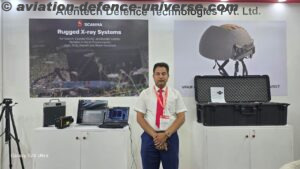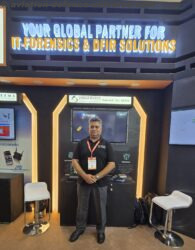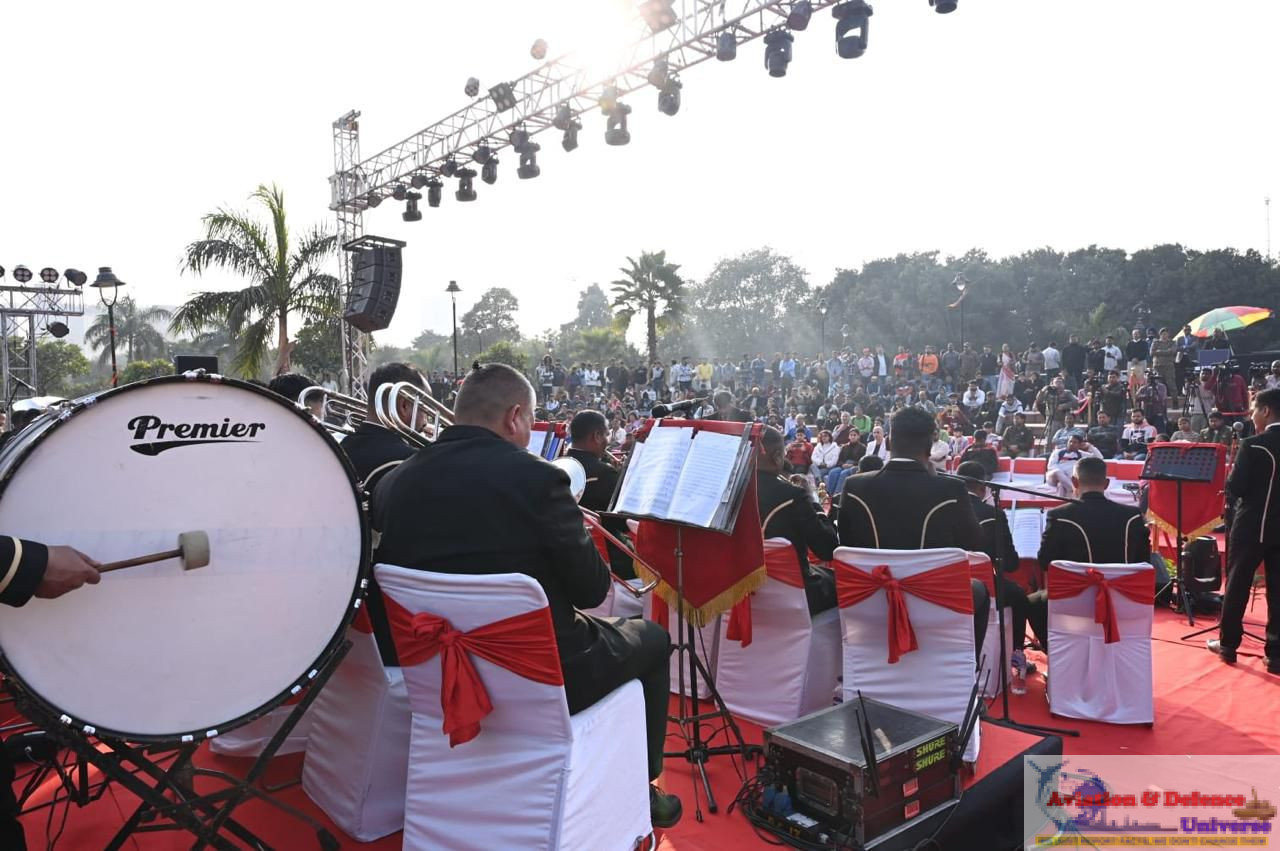- Cyber First Responders : Vishnu Datt on Protecting India’s Forces in the Age of AI and Digital Crime
- Cyber Defence Begins at the Crime Scene : Vishnu Datt on Making India’s Forces Digitally Future-Ready
By Sangeeta Saxena
New Delhi. 01 May 2025. At the Milipol India 2025 exhibition, where homeland security and defence technology innovations take center stage, ADU caught up with Vishnu Datt, CEO and Founding Director of Cyber Intelligence Global LLP. A trailblazer in digital forensics and mobile threat defence, Vishnu and his team are working closely with India’s armed forces, paramilitary, and police to bring cutting-edge cyber investigation tools to the field. From cyber first responder kits to mobile threat detection systems and forensic vans, his company is playing a crucial role in making India’s law enforcement digitally agile.
Cyber Forensics, also known as computer forensics or digital forensics, is the branch of forensic science that involves the identification, preservation, extraction, analysis, and documentation of digital evidence. It plays a critical role in investigating cybercrimes, data breaches, online fraud, and illegal digital activities by retrieving information from computers, mobile devices, networks, and storage media in a legally admissible manner.
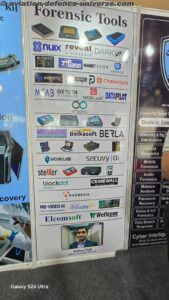 With the surge in cyber threats, digital espionage, and data theft, cyber forensics has become essential for both law enforcement and corporate sectors. It helps determine the origin and nature of cyberattacks, supports prosecution in legal cases, and strengthens cybersecurity by identifying vulnerabilities. It is also crucial for incident response, enabling organizations to understand what went wrong, mitigate damage, and prevent future breaches.
With the surge in cyber threats, digital espionage, and data theft, cyber forensics has become essential for both law enforcement and corporate sectors. It helps determine the origin and nature of cyberattacks, supports prosecution in legal cases, and strengthens cybersecurity by identifying vulnerabilities. It is also crucial for incident response, enabling organizations to understand what went wrong, mitigate damage, and prevent future breaches.
Cyber forensic techniques are used by law enforcement agencies, intelligence services, corporate cybersecurity teams, legal professionals, and independent investigators. Governments use it to trace cyberterrorism and cyber warfare activities, while businesses rely on it to investigate insider threats, IP theft, or violations of data protection laws.
ADU. Vishnu, we’re meeting at Milipol India 2025. What is Cyber Intelligence Global showcasing this year?
Vishnu Datt. We’re showcasing a range of digital forensics solutions, e-discovery tools, cyber intelligence platforms, and mobile threat defence systems. These are already in use by various Indian armed forces, law enforcement, and intelligence agencies.
ADU. Are these products new to the market, or already in service?
Vishnu Datt. Many of them are already deployed. Indian Army, Navy, and Air Force have been using different combinations based on their needs—whether it’s mobile, computer, or cloud forensics.
ADU. So, all three forces have your solutions?
Vishnu Datt. Yes, all three—Army, Navy, and Air Force—are using our digital forensic tools. Each has its own forensic labs, and we support several such installations.
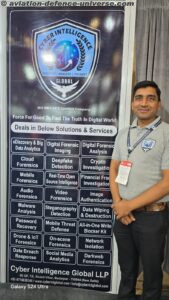 ADU. What about paramilitary and police forces?
ADU. What about paramilitary and police forces?
Vishnu Datt. We currently serve 7–8 state police departments, paramilitary forces like CRPF, and also work with key intelligence agencies, especially in Delhi. I can’t name them all, but they are using our tools extensively.
ADU. Are you developing these products yourself or partnering with others?
Vishnu Datt. We follow a hybrid model. Some tools are developed in-house, while others are sourced from global partners in Israel, the US, and Russia. We act as integrators to provide a complete forensic solution based on customer needs.
ADU. Tell us more about your mobile threat defence system.
Vishnu Datt. Threats have shifted from traditional servers to smartphones. Our system detects and blocks intrusions—whether through phishing apps or data-leaking malware. Unlike antivirus tools that rely only on signature detection, our solution uses behavioural analysis to spot risky activity in real-time.
ADU. Is this installed on individual mobiles or run centrally?
Vishnu Datt. It works on a client-server model. Defence organisations often want control, so we give them the server setup, and they install client agents on phones. These communicate securely to detect and report any threat.
ADU. What is the Cyber First Responder Kit?
Vishnu Datt. It’s a portable forensic field kit designed for on-site investigations. As per India’s new BNSS law, crimes that carry over 7 years of imprisonment require mandatory forensic evidence. Our kit allows investigators to collect, preserve, and analyse digital data on-site—crucial for admissibility in court.
ADU. And this works across platforms—Windows, Mac, Android?
Vishnu Datt. Yes, it covers all major OS. Windows, Linux, Mac for laptops; Android and iOS for smartphones. The aim is to secure and analyse data at the scene regardless of the device.
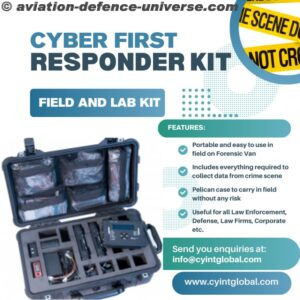 ADU. What about deepfakes? Are you addressing that threat too?
ADU. What about deepfakes? Are you addressing that threat too?
Vishnu Datt. Absolutely. Deepfakes now go beyond photos—into voice and video. We use AI-based tools to detect manipulated content across media. It’s critical in cybercrime and anti-terror investigations.
ADU. Your Field Forensic Van is getting attention. Tell us about it.
Vishnu Datt. It’s a mobile crime lab. We customise it with all equipment needed to analyse drugs, explosives, biological samples, and digital devices—right at the crime scene. This reduces delay and allows instant action when time is critical.
ADU. And social media analytics?
Vishnu Datt. That’s about sentiment analysis. Suppose the PMO posts a video—we analyse the public response. positive, negative, or neutral. It’s useful for intelligence, crisis management, and law enforcement.
ADU. Any close-call experiences from your work?
Vishnu Datt. Yes, once I was helping police during a cybercrime investigation and found myself in the room with a terrorist suspect being interrogated. I didn’t even know until after! It was a reminder that civilians like us face risks too when working in this space.
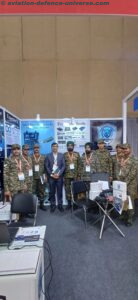 ADU. Finally, what message would you like to leave for India’s forces?
ADU. Finally, what message would you like to leave for India’s forces?
Vishnu Datt. Digital crime is growing rapidly. Since data became cheap, cybercrime has exploded. From financial frauds to deepfakes, every force must be equipped—before the need becomes urgent. Tools should be ready, not reactive.
Cyber forensic investigations take place in dedicated forensic labs, corporate IT departments, or on-site at crime scenes. With the rise of cloud computing and remote work, investigations increasingly require access to virtual environments and cloud-hosted data, expanding the scope of forensic operations beyond traditional physical systems.
The process begins with securing the digital crime scene and imaging data to avoid altering original evidence. Investigators then use specialized tools and software to analyse files, trace activity logs, decrypt data, and recover deleted information. The findings are compiled into a report that can be used in legal proceedings or internal disciplinary actions. The process must maintain a clear chain of custody and follow legal protocols to ensure evidence integrity.
It is typically used after a cybersecurity incident has occurred—such as a data breach, ransomware attack, or unauthorized access. However, it is also part of proactive security strategies like audits and compliance checks, helping institutions meet legal and regulatory requirements.
Cyber threats evolve by the day, and Vishnu Datt’s vision ensures India’s security forces are not caught off guard. With tools that range from behavioural analytics on smartphones to field-ready forensic vans, Cyber Intelligence Global LLP is equipping India’s police and armed forces to face a digital-first battlefield. As Vishnu says, the time to prepare isn’t when the crime happens—it’s before.
As told to Sangeeta Saxena








